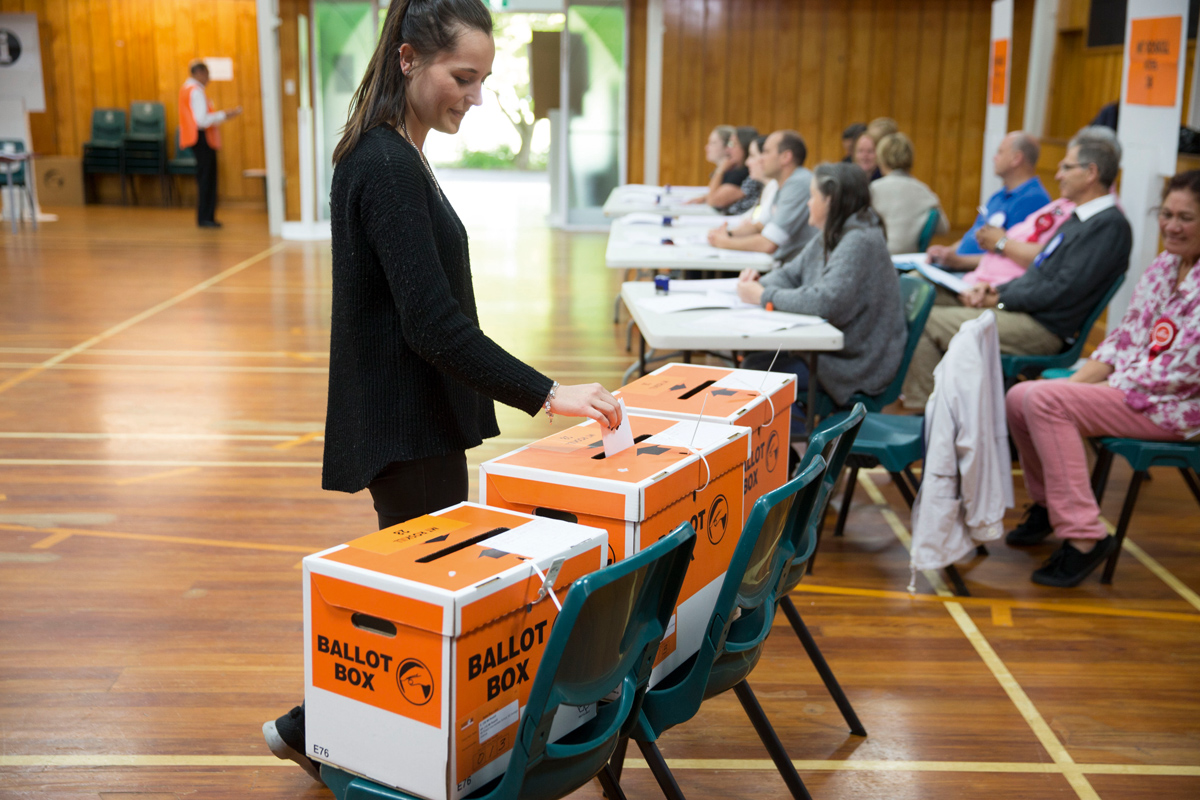Voting Papers Are Out, Are You In?

It’s D-Day for local council elections next month and the potential for a high return on votes has been forecast. In the Taupō District an estimated 90.65% of the eligible population are enrolled to vote,and in Tauranga the figures stand at 96.19%.
Irrespective of population and city size, our local councils’ purpose ultimately remains the same across the country. And, irrespective of whether you choose to vote, political decisions will continue to govern our lives – the freedoms and opportunities we have and the environment we live in, says parliamentary member, Chlöe Swarbrick.
“Your political representatives are there because you either elected them, or neglected to elect them. If you don’t like or trust your representation, find somebody in your community who you do trust, and back them in running. If we do what we’ve always done, we’ll get what we’ve always got.”
At the end of the day, voting is every man’s right, reminds Chlöe. “If you breathe air, drink water, eat food, or would like a roof over your head at night, you’re inherently political. The affordability, availability and accessibility of those things are all discerned by political decisions.”
So, with political speak the word on the street, there’s no better time to brush up on a little local council lingo.
In brief, local councils are called upon to…
… act for local communities with democracy at the fore – decision-making and actioning them.
… think now and into the future, i.e. meeting needs for good-quality infrastructure, public services and regulatory systems.
Tiers of local governance at a glance…
- Each local council has two tiers of governance – Regional Council of which there are 11, and Territorial Councils (either District or City) – of which there are 67.
- Most of our regions are based largely on drainage basins, and most regional boundaries conform with territorial authority boundaries – however there are exceptions, e.g. the Taupō District is split between four regions.
- Regional Council duties include: environmental management – air and water control, coastal management, regional land management, regional transport, pest management.
- Territorial duties include: urban and rural planning, network utility services i.e. sewage, stormwater, local roading, libraries, parks and reserves.
Why vote local? Fast facts…
- The margins are much closer on a local level than on a national level when it comes to counting the votes – which means more power to the people.
- Local policies effect your everyday, e.g. where you can walk your dog, changes to public transport – e.g. those bus timetables, which events you can see in your city, etc.
- Your vote counts towards making rules and regulations around specifics like public art placement.
- Local councils have a say over local public-school funding – not Jacinda.
- You have the opportunity to choose a candidate that is aligned with the issues you see as important – and you are funding the council with your rates – so speak up.
Are you voting?
We ran a recent Facebook Poll to see who was planning on voting in our regions this election – here’s what the results revealed: 63% of respondents ticked ‘YES’, but a call to vote was a ‘NO’ for the other 37%.
Image: Electoral Commission